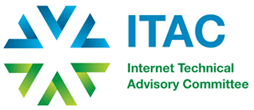 By Karen McCabe, Senior Director Technology Policy and International Affairs, IEEE Standards Association
By Karen McCabe, Senior Director Technology Policy and International Affairs, IEEE Standards Association
A new Internet age is emerging which will likely lead to many significant shifts in the Internet’s future role in society—namely as we progress to a device and human hyper-connected reality. These shifts will have major implications for the future of the Internet, not only on its governance and development, but also on its use and impact. There have been dramatic transformations to Internet-enabled devices that network and communicate with each other providing unprecedented opportunities for new services, improved productivity and efficiency, real-time decision-making and innovative user experiences.
We are now poised for a revolution in which the connection goes beyond connecting only computing devices and begins to includes sensors, everyday objects and the built environment or infrastructure. Much of what we have traditionally considered to be inert and distinctly non-electronic is becoming a part of this mega-network—of what today is called the Internet of Things (IoT).
Where every device and virtually all electronic devices (and people) are connected in this new era of IoT, there is an exponential growth in collecting, transmitting and analyzing data resulting in a massive creation of a vast knowledge set that will help catalyze a knowledge society. While IoT and data analysis can lead to greater empowerment of world citizens and economic growth, the same opportunity challenges the concept of privacy and security.
The increasing rise in data capturing, linking, analyzing and using information raises concerns about individual privacy protection. Personal data is the type that has drawn the most attention from a regulatory and policy point of view. Thus, the challenge is to achieve an acceptable relationship among individuals’ right to privacy and the emerging opportunities in data innovation. Importantly, there is a paradox where the Internet and devices are used intensively and data is relinquished willingly with opposing fears that privacy is compromised. This paradox can hinder the potential unlimited growth of the new Internet (and IoT) age by users and industry that may ultimately affect the global economy.
Having guidelines and a set of global principles that focus on the protection of the economic and social activities that rely on the digital environment will serve as a strong foundation to help unencumber future development and support data innovation and usage opportunities that will benefit citizens of the world. This week at the 69th Session of OECD CDEP (Organisation for Economic Co-operation and Development Committee on Digital Economic Policy), the draft recommendation on Digital Security Risk Management for Economic and Social Prosperity—the result of a thorough review of the 2002 Recommendation of the Council Concerning Guidelines for the Security of Information Systems and Networks: Towards a Culture of Security—will be submitted for discussion with the proposal that the draft Recommendation replace the 2002 Security Guidelines. The review was launched in 2013 by the Working Party on Security and Privacy in the Digital Economy (SPDE).
